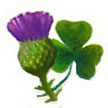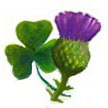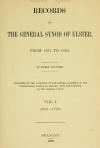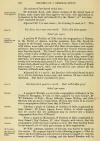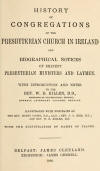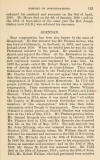The Widney / Udny Family of Scotland and Ireland
Copyright 2014,
2020 ________________________________________
Note: The lineage from Generation 1 to Generation 4 is believed but not absolutely proven to be a direct lineage, but they are doubtless of the same family. Generations 4-5 are proven by original documentation of the period to be a direct paternal relationship. Generations 5-7 almost certainly represent a direct lineage given that the man in Generation 7 sold the property owned and passed down by Generation 4. ________________________________________ Generation 4 James Widney I of Killymurry JAMES WIDNEY I, also known as James Widney the elder, was born about 1670 in Ireland and died about 1740 in Killymurry, County Monaghan. He was the son of Nicholas Widney of Killymurry. On 23 June 1713, James was one of four Commissioners who petitioned the Presbyterian Church in Ireland for the establishment of a new, separate congregation for certain members of the congregation of Kinaird, Presbytery of Monaghan. The request was granted, and the new congregation has been called by several names, including Treugh, Glennan, and Glaslough.1/,2/ The church was located in the village of Glaslough, which later was the home of William Williams, who married Margaret Widney in 1779. On 11 May 1724, "James Widney the elder" and his son, James Widney "the younger", entered into a deed contingent upon the marriage of the younger James to Ann Carlisle, conveying to James the younger the sum of fifty pounds sterling and one-half of the townland of Killymurry, along with half of the houses and improvements thereon. The Killymurry property was being held by virtue of a lease from Thomas Marlo and Thomas Croffton, Esq.3/ Intriguingly, surviving Irish estate records and deeds show Sir Hugh Crofton holding estates in both County Monaghan and County Cavan later in this century. Was Thomas Crofton, Esq. an uncle perhaps, and did the Widneys leave Cavan for Monaghan by way of the earlier lease from Marlow and Crofton?
James Widney I died about 1740, and his will was recorded in Clogher Diocese. For this period, however, only indices survive and not the wills themselves.4/
Killymurry passed to James Widney II. The children of James Widney I are:
i.
JAMES
WIDNEY
II, b. 1690 - 1700 in
Killymurry, Co. Monaghan, Ireland; d. abt. 1740 in Killymurry. ii. HUGH WIDNEY, b. abt. 1700; d. probably after 1778. In 1726, Hugh Woodney in Newry Parish, County Armagh applied to register a freehold in the townland of Lisdrumliska. Newry Parish is divided between Armagh and Down; and Lisdrumliska is a townland in Armagh lying thirty-two miles southeast of Glaslough and very near the border with County Down. In 1775, Hugh Woodney of Newry Parish, Counties Armagh and Down, signed a Protestant Dissenters Petition. On 30 October 1778, Hugh Woodney of Newry Parish leased lands of Ballynacraig in County Down from Ross Moore of Carlingford, County Louth. County of
Armagh Register of Notices of Applications to Register Freeholds,
p. 69; PRONI 1775 Dissenters Petitions; PRONI Ref. No.
D4066/8 iii. ALEXANDER WIDNEY or WOODNEY, b. abt. 1700; m. 1754, Elizabeth Carlisle, daughter of William Carlisle and Elizabeth Campbell of Newry Parish, County Armagh or County Down, Ireland; bap. 7 May 1704. The town of Newry and Newry Parish both are often referred to simply as Newry, and the name Newry is typically associated with County Down since the greater part of both the town and the parish lie in Down. However, parts of the town and the parish lie instead in County Armagh. The unfortunate result for genealogists is that anyone mentioned as being "of Newry" typically is indiscriminantly associated with County Down when ~ to the contrary ~ some such persons undoubtedly lived in County Armagh. Old Families of Newry, R. S. J. Clarke, Ulster Historical Foundation, Belfast (1993), p. 20
http://freepages.genealogy.rootsweb.ancestry.com/~rosdavies/SURNAMES/C/Carlisle.htm
iv.
WILLIAM
WIDNEY
(possibly), b. abt. 1711, Upper Masserene, Glenavy Parish,
County Antrim, Ireland.
In 1711, William Woodnay, son of Jamie
[James] Woodnay, was baptized in Upper Massereene.
County Antrim is on the northern border of County
Down.
The father in the baptismal record is assumed to be the same person as
James Widney I of Killymurry; but it is unknown why James would have
had a child baptized in a church nearly 50 miles from his home. PRONI Ref. No. T679/1: 1707-1784 Baptism Records v. JOHN WIDNEY, b. abt. 1720 in Killymurry, County Monaghan, Ireland; d. aft. 21 December 1758, possibly, in Blackwatertown, County Armagh. On that date, John Widney, merchant in Blackwatertown, County Armagh, was party to a 14-year lease for land in Blackwatertown, with a clause for renewal. Blackwatertown is a townland lying 14 miles northeast of Killymurry and 37 miles northwest of the town of Newry.
PRONI Ref. No. D526/2E/9 James Widney I conveyed his Killymurry property to his son JAMES WIDNEY II. For a complete record of the Widney family of Ireland through the end of the 18th century, the evidence of their Scottish roots, and a discussion of Widney origins as told by Dr. George Wilds Linn, see : ________________________________________
For extensive collections of the history of Lynns, Linns,
Linds, etc. in Scotland and Ulster, see House of Lynn
______________________________________________________ |
|||||||||||||||||||||||
|
|
